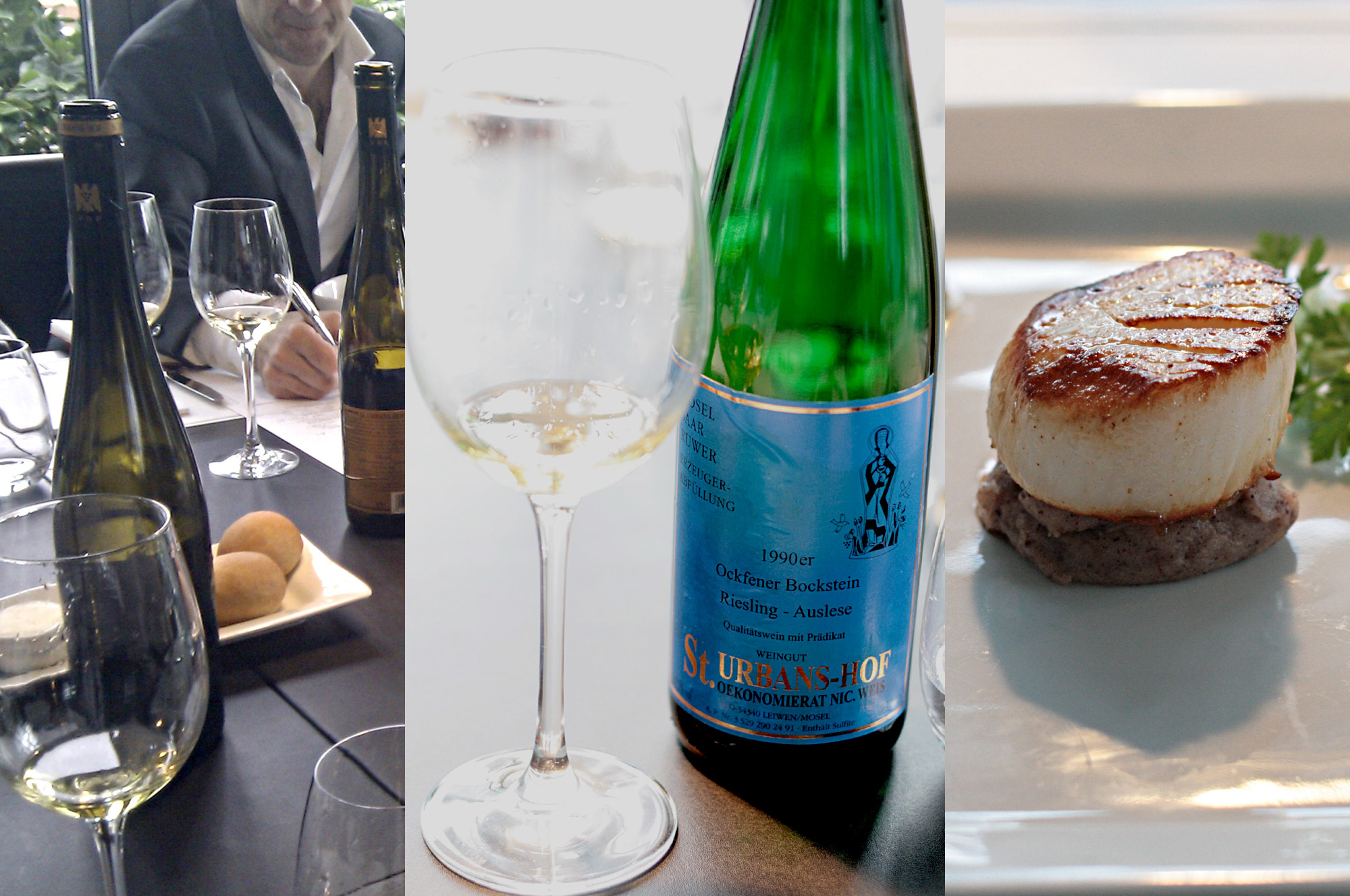The Sultans of Sweet. Learning about matching Residual Sugar in Mosel Riesling with food
Sweet wine is evil. Just mentioning it can make people's faces go grumpy bulldog on you. Even the faces of those who haven't tried any yet. Wine with residual sugar is often seen as nasty plonk, suitable for a cheap hangover or perhaps as a wine for the ladies, and that is usually not meant as a compliment either. In the UK, it is particularly associated with Germany 'thanks' to brands such as Liebfraumilch.
So I have to deal with a lot of bulldog faces in my mission to interest people in German wine. The most successful approach, I find, is to get them to taste the wines, especially with food, but that is a slow process if you are just one guy with a wardrobe full of Riesling in a nation of millions of wine drinkers.

So imagine my delight when I was recently invited to a lunch workshop designed to explore how off-dry and sweet Rieslings pair with food: Who is afraid of Residual Sugar? was organised by St. Urbans-Hof, one of the premier Mosel estates. What started as a very exciting and tasty experiment turned into a far-reaching discussion on the world of wine, customer perception, national (wine)stereotypes and wine marketing.
